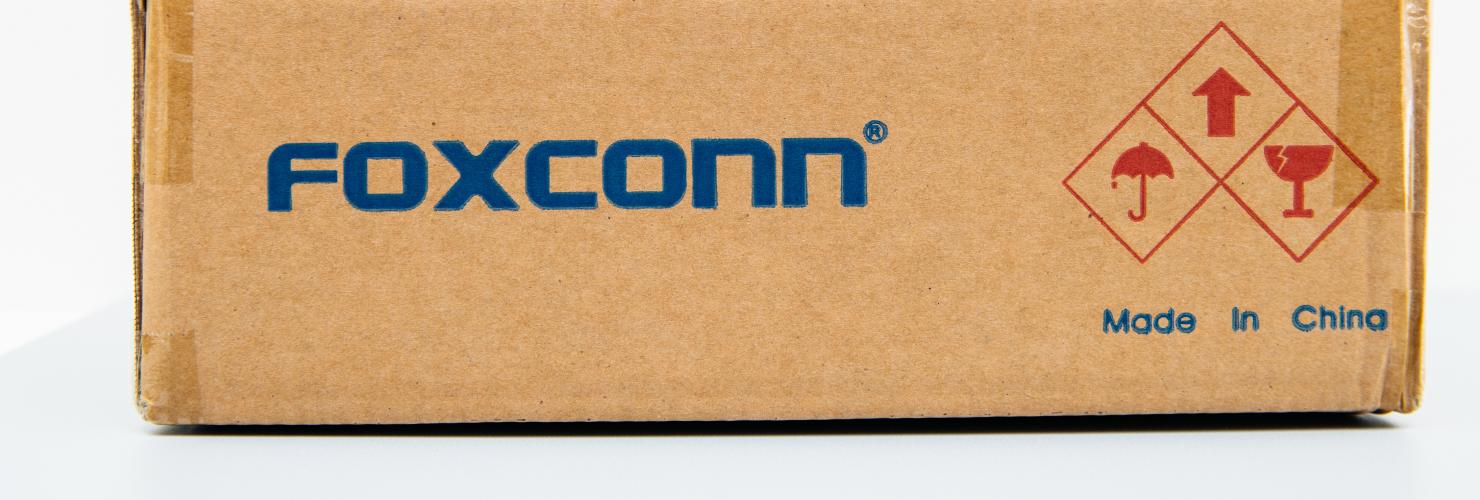

Recalibrating the price of "Made in China"
Traditionally among the biggest investors in China, Taiwanese companies are shifting their focus to neighboring countries. Michelle Tsai says the US-China trade conflict is only one reason.
Taiwanese master-baker Wu Pao-chun was left in a tricky situation late last year as he opened a first Chinese outlet, in Shanghai. Needled by mainland social-media criticism about his purported support for an independent Taiwan, Wu publicly declared himself “Chinese” and a supporter of unification. But his move failed to lure Chinese customers in great number – and offended many of his long-standing Taiwanese regulars.
Beijing seems ever more willing to interfere in economic activities
Since China launched economic reform in the late 1970s, Taiwanese businesses have flocked to China for its promise of large markets or cheap labor – or both. But Wu’s predicament shows political risks remain as Beijing seems ever more willing to interfere in economic activities. Despite four decades of economic interflows, a growing number of Taiwanese enterprises are finding the lure of “Made in China” too good to be true.
This is a momentous shift: as experienced manufacturing partners of Western brands and China’s tactical target of unification, Taiwanese companies are among those that pioneered investment into Chinese plant and equipment. The endless supply of commodities ‘Made in China’ that today have become part of daily life all the globe - from toys to electronics – exist thanks to Taiwanese investors as much as Chinese laborers.
Taiwanese businesses have started to channel their capital to countries other than China
As of 2017, China’s Department of Commerce recorded Taiwan as the seventh largest source of foreign direct investment (FDI) in China – though it did not account for what are thought to be huge Taiwanese investment flows via Hong Kong, China’s largest FDI source. Together, investors from Hong Kong and Taiwan own 58 percent of foreign companies in China.
But in recent years, Taiwanese businesses have started to channel their capital to countries other than China. Official statistics show that Taiwanese investment into China fell from 81.2 percent of Taiwan’s total FDI-outflow in 2010 to 43 percent in 2017 as companies relocate factories to lower-cost countries in Southeast Asia, to the United States upon client’s request, or back to Taiwan.
The ongoing US-China trade dispute will probably only increase this trend. US imports from China decreased by 13.9 percent in the first quarter in annual comparison, while imports from Taiwan and Vietnam increased by 21.2, and 40.2 percent respectively. Taiwanese enterprises in China have started shifting investment back to Taiwan. The Ministry of Economic Affairs puts the figure at 411.7 billion New Taiwan Dollars (EUR 11.7 billion) and 36,850 jobs thus far this year – and the supply chain will likely change even more if the prospect of a long Sino-American trade stand-off prompts more manufacturers to leave China.
Taiwanese companies might be hit hard by the US-China trade conflict
Taiwan is a huge intermediary in US-China trade. 15 of the top 20 enterprises that export to the US from China are Taiwanese. With US tariffs on Chinese imports now as high as 25 percent, Taiwanese-owned manufacturing facilities in China are expected to be hit hard if high levies are extended to more consumer products.
But the trade war might prove to be only the straw that broke the camel’s back. For some time, China has not been what it used to be for investors - the country’s competitiveness in terms of manufacturing cost is a shadow of its former self, and the effects of rising labor costs have been compounded by slowing economic growth. On top of that, Taiwanese companies have become increasingly alert to – and alarmed by – difficulties in Chinese markets.
Many of them have come to realize that China is large, but also awkward to handle. Despite the privileges offered by the Chinese government to ‘attract investment’ (‘zhaoshang yinzi’ in earlier years), hidden rules and nationalist sentiments in many instances replaced government accountability and market transparency in daily business operations.
Environment for Taiwanese companies in China is changing
Some companies transferred skills to Chinese counterparts but lost out to China’s home-grown “red supply chain” which often receive financial support from the government. Some were hit by labor protests that turned into nationalist rallies. The challenges keep intensifying. A newly revised guideline, for example, mandates that all publicly listed firms in China set up Communist Party organizations. “The production environment in China and its friendliness to Taiwanese business people are completely incomparable to 20 years ago,” one executive told me.
China is using the business community to interfere in Taiwan politics
As the Taiwanese economy became more dependent on China, the higher the political price Taiwan and its companies had to pay: China has not been shy to use the business community to interfere in the island’s politics. Despite Taiwan’s restrictions on Chinese investment, China has overtaken the US and Japan to become its biggest trading partner. Mr. Wu is not the only Taiwanese entrepreneur to publicly support the “One China Principle.”
Just as Beijing has attempted to politicize its economic engagement with Taiwan, the trade dispute between China and the United States is about much more than trade. There is an underlying clash of ideologies in which Western liberal capitalism is being challenged by China’s economic rise and “socialism with Chinese characteristics.” With China and the US seemingly on the brink of a tech war to gain geostrategic dominance, trade talks could turn to be no more than a prelude to deeper global economic restructuring.
What is certain is that Taiwanese companies have learned to put their eggs in different baskets. “Made in China” is no longer only about production costs, but also about political risks when China’s accountability and transparency become thorny issues. But whether their shift in investment will create a “non-red supply chain” outside China will depend on concerted government policies, perhaps also new forms of regional cooperation.
